Would you like to beta test the new updated version of Driftmoon? Do you have a device with Windows, OSX, iOS or Android? Mail me at ville@instantkingdom.com, and tell me which platform you'd like to test on, and if it's a mobile, your user account on that platform.
Ps. Our safely distant love to anybody reading this, and suffering from the virus or stuck at home social distancing! We're hoping this new build of Driftmoon will bring at least a tiny spark of joy to people during this strange time. We'll let you know more about the new version soon!
Anne and Ville
Now is a great time to get Driftmoon or Notrium, if you haven't already. And if you already have, give it as a gift!
On a sidenote, I'm working on porting Driftmoon to mobiles/Mac. While I'm working on it, it's getting quite a bit of fixes and tweaks. More on that later.
My friend Mika made this great game that I'm playing right now. Playing this brought back a memory from childhood, when I was really starting to hate a game called Pegged that came with the Microsoft Entertainment Pack for Windows 3.1. Oddhop has cured my fear of peg solitaire, so now I'm finally feeling like a stable person.
The Notrium Steam edition is recommended for Wazzal II, as it fixes many bugs in the engine.
36 years after the events of Wazzal, and four years after Notrium...
After the sun was destroyed by a supernova and most of humankind mysteriously abducted by a shadowy Alien race, a handful of brave space pilots established a new colony in the depths of space. Wasting no time, this motley collection of adventurers, traders and buccaneers set off to explore their new corner of the galaxy. Soon the United Confederacy of Planets was formed, heralding a new dawn for humankind free from Alien interference.After many years of peace, the Alien threat has re-emerged to finish what they started! The Confederacy is in ultimate peril as massive Alien fleets begin their relentless drive towards the capital New Dawn, leaving nothing alive. Humankind's last hope lays on the shoulders of the most famous of the human pilots: the enigmatic "Captain", survivor of the doomed Sol System and the terrible planet of Notrium....

Mod features
- Two gameplay modes: starship combat and exploration aboard the Wolf IV, and on foot as the legendary "Captain" from Notrium and Wazzal!
- Eight completely unique star systems, and fourteen planets and space stations to explore (including lava, ocean, ice, desert and jungle worlds, low gravity moons, gas giants and Alien planets!)
- Over 100 items to use in both space and on planets, including electrobinoculars, night vision goggles, stealth armor and high explosives
- More than 40 weapons, including sniper rifles, particle cannons, rocket propelled grenades and Alien technology
- Six controllable vehicles, including tanks (armed with cannons and flamethrowers), armored boats (armed with machine guns), fighters (armed with airstrikes and lasers), machine gun emplacements, flamethrower pillboxes and even Confederacy Destroyers!
- 11 United Confederacy Ranks (Ensign to Admiral of the Fleet) with valuable rewards for completing ingame missions
- Fly the flag of the United Confederacy of Planets, abandon your duties to raid and plunder as a ruthless pirate, or even join the dreaded Alien Horde!
- Make a fortune trading slaves, drugs and weapon parts on the Galactic Stock Exchange, hunting for dangerous local creatures, farming rare plants, mining for ore or even fishing!
Surprise! We've released Notrium on Steam! The Notrium Special Surprise Edition is a re-release of the 2005 Notrium, with many improvements including achievements, cloud saves, autosaves, combination hints for the easier difficulty levels, and to top it all, a surprise! I mean, there's another more secret surprise, not just this surprise. But I bet you were surprised anyway.
Some 12 years ago I released a game called Notrium. The design was simple: you've crash-landed, and you've got to fix up your escape pod with scavenged parts before you get killed by all the aliens. I think I recall feeling that getting the word out about a game was a lot of work back then, I actually mailed about a dozen sites about Notrium! And then I sat back, and waited to see if someone downloaded the game.
To me that was the defining point in my game development hobby, that's when I decided I'd want to make games for a living. Not only had there been a lot of downloads for Notrium (millions was a huge amount back then), there were an overwhelming number of positive reviews about it. Even when I met my wife Anne for the first time, it turned out she'd heard of Notrium. The poor girl must have thought I was some kind of a suspicious game developer rock star when she started seeing me. ![]()
After Notrium got modding support, I worked with the talented and inventive Quanrian (Michael Quigley), the first of Notrium's many modders, to provide more playable characters, endings and everything that makes Notrium the game it is today. I'm glad to see many Notrium modders working in software development today. Sam must be a grown man already. At least we'll always have HarmlessHermit's Notrium Saga. There were hundreds of people who supported and encouraged me with the development of Notrium, and I'm extremely grateful for every one! Without you Notrium, Driftmoon, or our upcoming game(s) would not have been possible.
I had a lot of fun replaying Notrium when making this special edition version, and I hope you'll have fun too. And yes, Anne did really try the game, and found it quite difficult. Though I think she was just trying to make me feel better about dying so often.
Ps. I wonder if you'll find the surprise in the game?







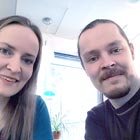
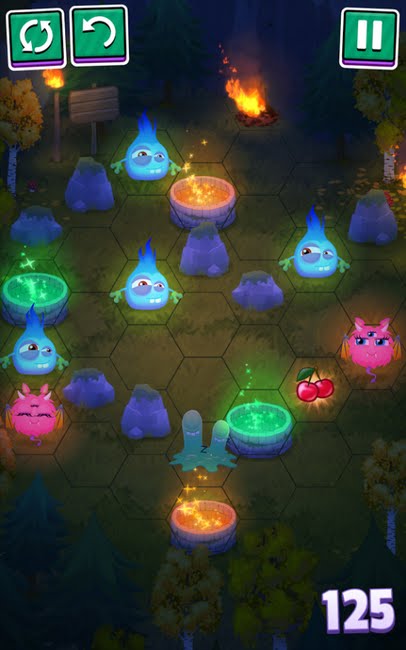




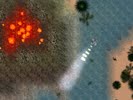
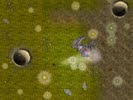
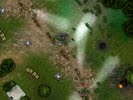

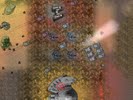

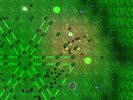
 Get our newsletter!
Get our newsletter!